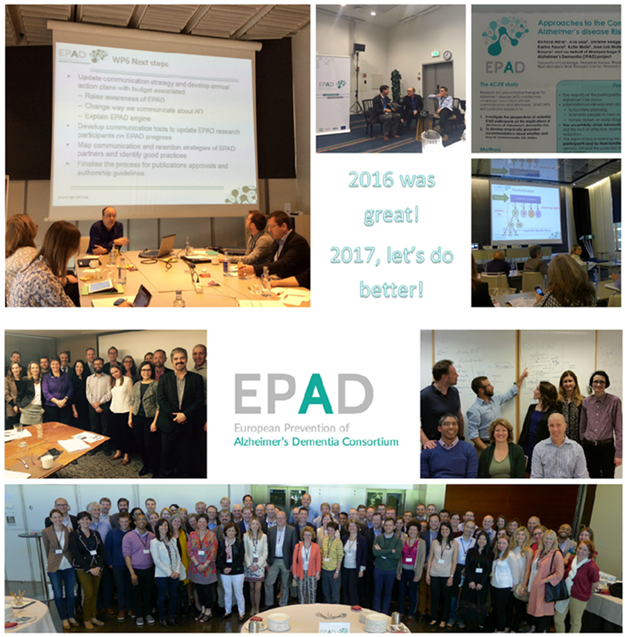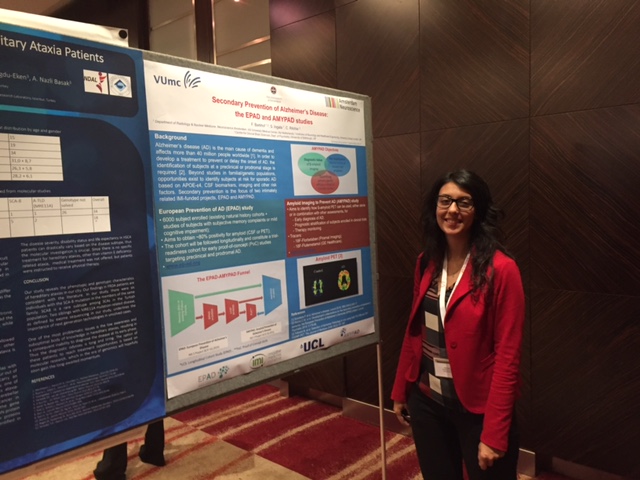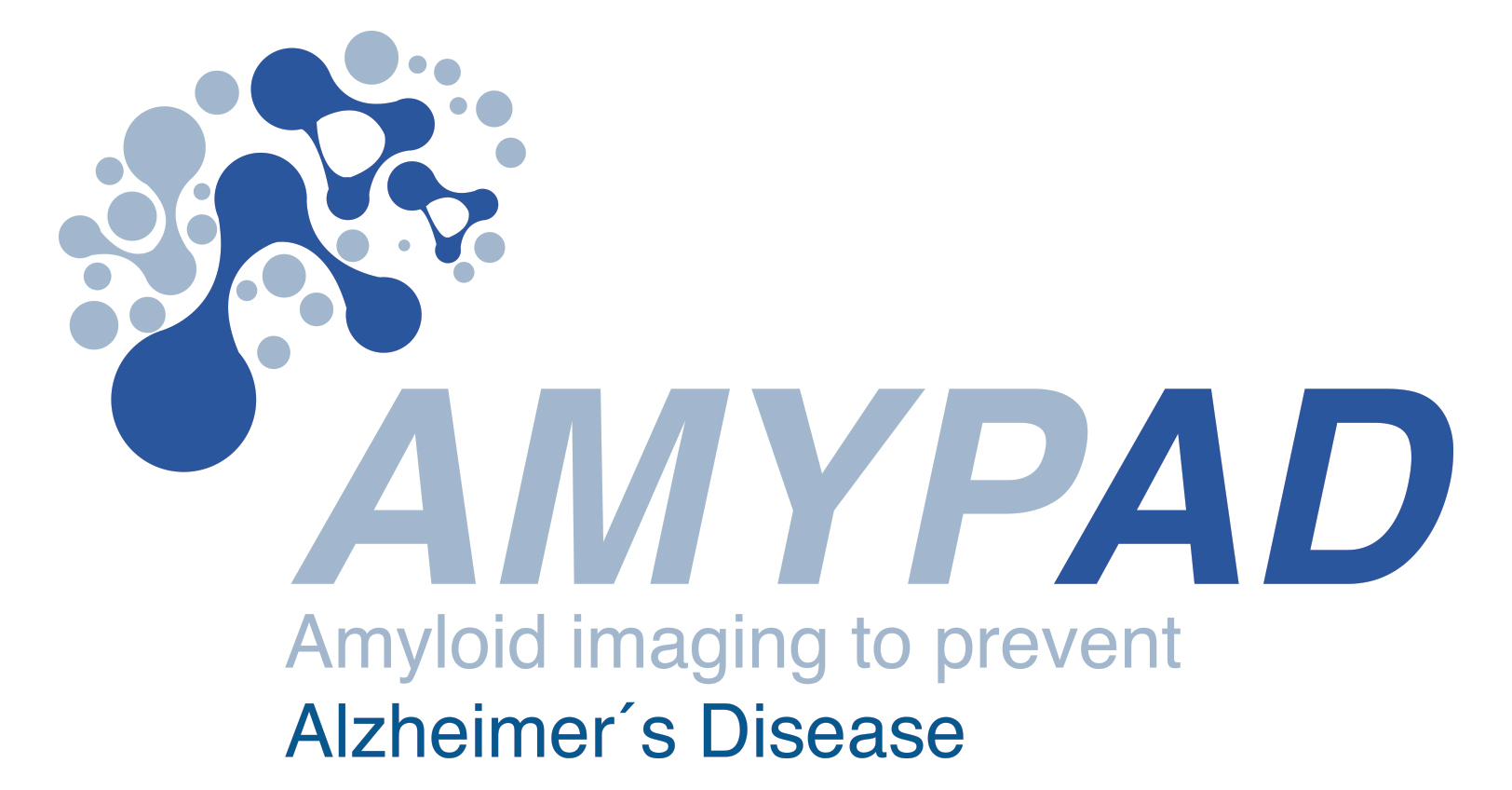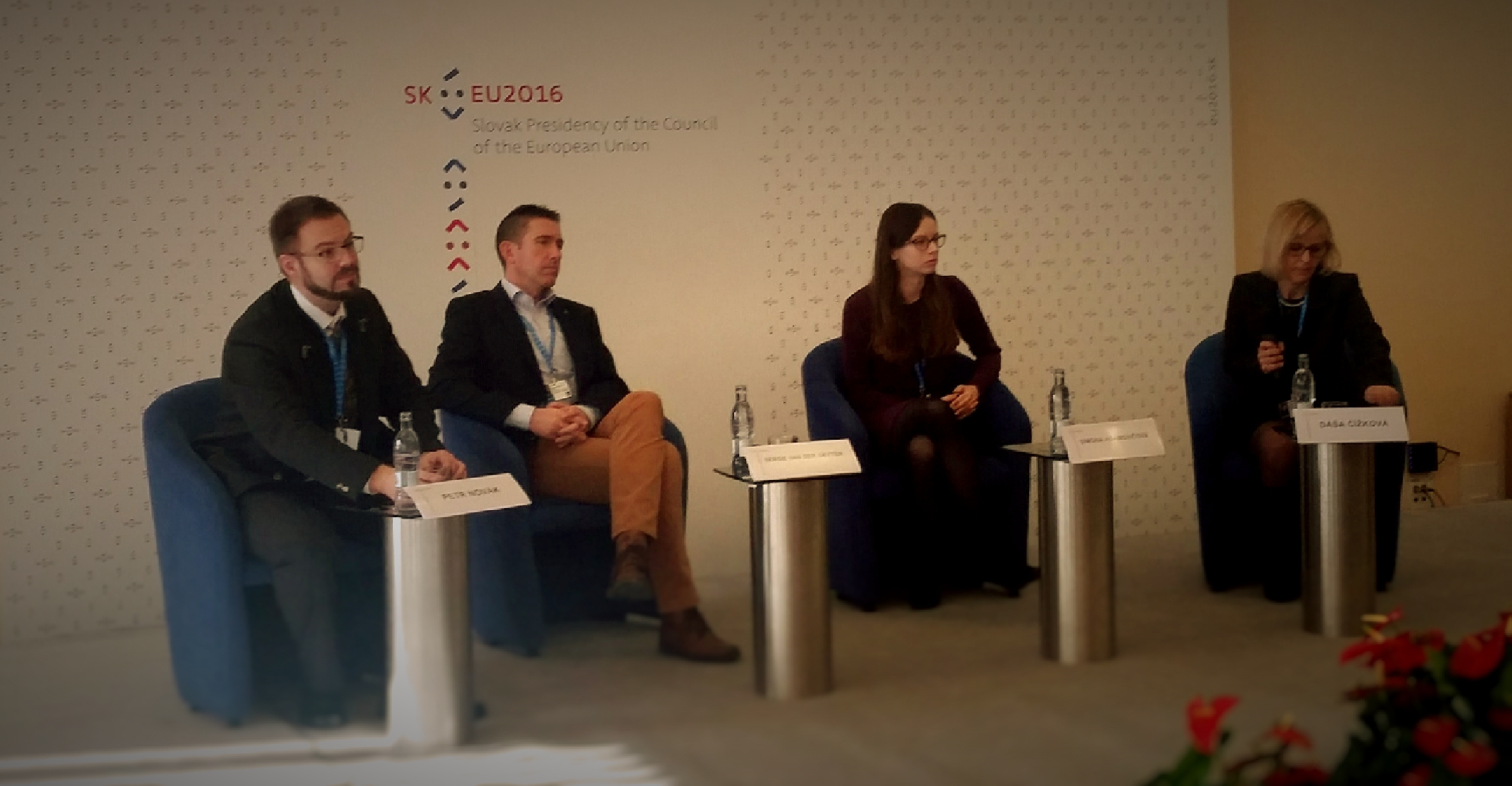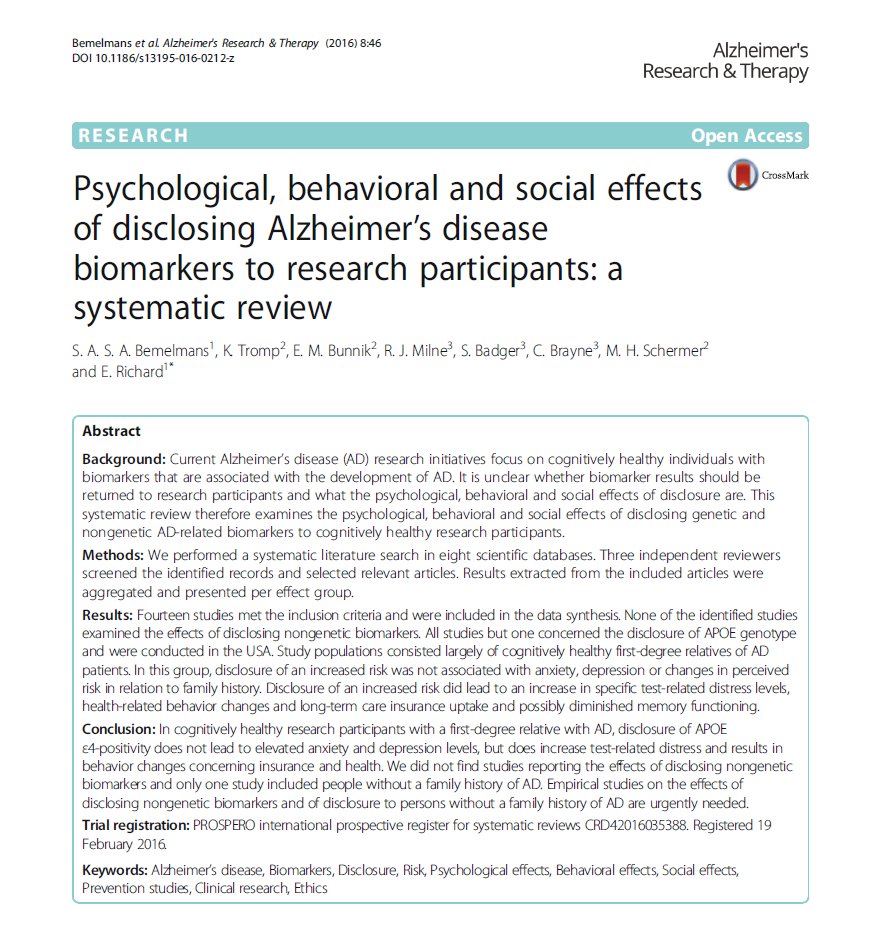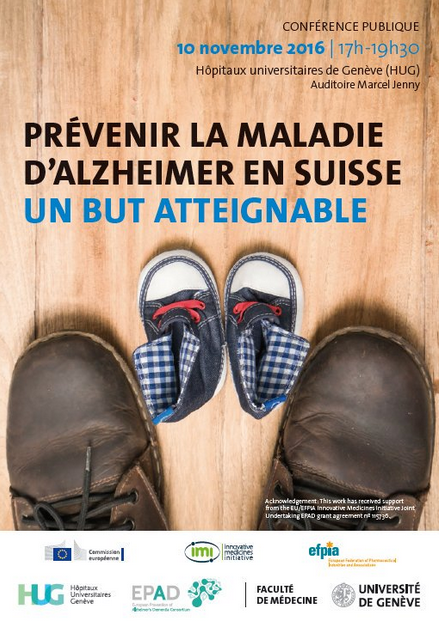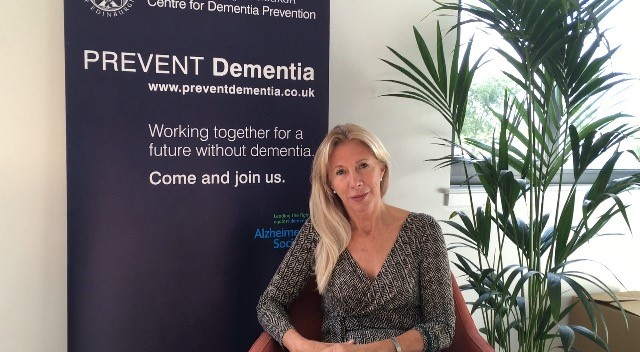What is your current role in EPAD?
I am the industry co-lead for Work Package 6, together with Jean Georges from Alzheimer Europe. Work Package 6 is the communication and information dissemination engine of EPAD. Our primary purpose is to let the world know what EPAD is doing. Our audience is very broad, ranging from healthcare professionals and other healthcare interest groups, to people with dementia and anyone who has an interest in this field. We utilize a number of communication platforms and channels. Medical congresses and journal publications allow us to communicate scientific data. Digital platforms such as our website and social media (e.g. Twitter, Facebook) allow us communicate the progress of the project, the meaning of the data that we are generating, as well as creating a general awareness of Alzheimer’s disease. Whenever we have an important announcement (e.g. first patient in the cohort) we issue a press release and closely monitor how this information is picked up by the outside world.
What did you do prior to joining EPAD?
I am a medical affairs director within the global neuroscience franchise at Novartis Pharmaceuticals. Global medical affairs is mainly responsible for generating and communicating evidence about diseases and medicines. We often serve as the interface between clinical practice and industry as many of us who work in medical affairs are medical doctors by background. I personally find this extremely important and always try to look at everything we do through the eyes of a doctor and patient.
I studied medicine in South Africa and started my career as a medical doctor working in psychiatry in the UK. I have been working in medical affairs for the past ten years in a number of pharmaceutical companies including GlaxoSmithKline, Eisai and Astellas. When I’m not working, I play the cello and piano, and have a passion for chamber music. I continue to be fascinated by the effect that music has on the brain, including its benefits for people with dementia. This is a growing field – just type “music” and “brain” into pubmed and I’m sure you’ll be pleasantly surprised by the results!
Tell us a bit about your organisation.
Novartis is a global healthcare company based in Switzerland that provides solutions to address the evolving needs of patients worldwide. Novartis operates businesses with global scale and strong customer ties, focusing on innovative patented medicines, generics and eye care devices. Our Innovative Medicines Division has two business units which both commercialize innovative, patented primary care and specialty medicines to enhance health outcomes for patients and health-care providers: Novartis Pharmaceuticals and Novartis Oncology. Our global product portfolio includes many medicines that are innovative leaders in their therapeutic areas, including neuroscience, cardio metabolic, retina, respiratory, oncology, immunology and dermatology. Novartis has built a strong heritage in neuroscience over the past 60 years with marketed products for Alzheimer’s Disease, Multiple Sclerosis, Parkinson’s Disease, Epilepsy, Attention Deficit Hyperactivity Disorder, Migraine/Headache, Depression and Schizophrenia. Novartis is consistently rated as having one of the industry’s most respected development pipelines, with more than 200 projects in clinical development. Many of these projects, which include new molecular entities as well as additional indications and different formulations for marketed products, are for medicines that could significantly advance treatment standards for patients worldwide. Novartis remains committed to the field of dementia research with two development projects in Alzheimer’s disease.
What are your expectations from this EPAD project?
This is a particularly exciting collaboration and one I am very proud to be part of. Dementia research is extremely difficult and has not yielded any approved new drug for over a decade. By combining forces across industry and academia my hope is that EPAD will markedly improve our understanding of Alzheimer’s disease and bring us closer to delaying or preventing the onset of dementia. This will ultimately have an important impact on those living with Alzheimer’s disease, their caregivers and society in general. This project is particularly close to my heart as my grandmother had Alzheimer’s disease. I was with her from the early stages until she passed away when she was at a very advanced stage of dementia. The emotional toll it takes on caregivers and loved ones is immense and nothing can prepare anyone for the course of this disease. My expectation of the EPAD project is that we will be able to accelerate the progress in this field so that other families in the not too distant future will not have to endure what my family and millions of others continue to endure right now.

